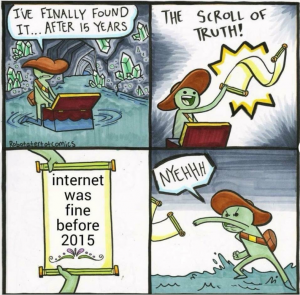- Mar 17, 2011
- 201
- 94
- First Name
- Ryan
Net Neutrality was voted down on Thursday by a vote of 3 to 2. The outcome of the vote was as expected, but few understand what it could mean in terms of the future of the internet.
Already, heavy hitters like Netflix, Facebook and Amazon have come forward to express their disappointment with the decision. In each case, spokespeople for these companies have referenced a ‘continuing legal battle’ in order to keep the internet free and accessible.
On the other hand, critics of the Net Neutrality rules claim this decision will drive innovation and improve internet services while bringing prices down. Their claim is that by deregulating the internet, service providers can offer better packages, enhanced services and more diverse pricing.
Ajit Pai, the FCC Chairman who has essentially become the center of the Net Neutrality debate, pointed out that the original Net Neutrality regulations had an almost immediate – and damaging – effect on the infrastructure that runs the Internet.
The move appears to be a victory for automakers, who argued the regulations could have restricted development of connected, wireless technologies in vehicles.
I'm not interested in the rhetoric of opinions on the debate for or against this, I'm interested in better understanding what it means to the car business.
Already, heavy hitters like Netflix, Facebook and Amazon have come forward to express their disappointment with the decision. In each case, spokespeople for these companies have referenced a ‘continuing legal battle’ in order to keep the internet free and accessible.
On the other hand, critics of the Net Neutrality rules claim this decision will drive innovation and improve internet services while bringing prices down. Their claim is that by deregulating the internet, service providers can offer better packages, enhanced services and more diverse pricing.
Ajit Pai, the FCC Chairman who has essentially become the center of the Net Neutrality debate, pointed out that the original Net Neutrality regulations had an almost immediate – and damaging – effect on the infrastructure that runs the Internet.
The move appears to be a victory for automakers, who argued the regulations could have restricted development of connected, wireless technologies in vehicles.
I'm not interested in the rhetoric of opinions on the debate for or against this, I'm interested in better understanding what it means to the car business.











